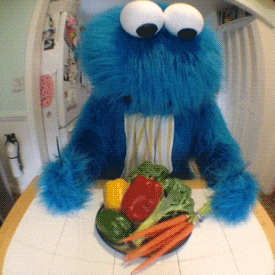What Mio's Rebrand Says About the Future of Marketing
With charts! (Plus, more unicorns. 🦄)

Did You Know? 58% of Gen Z say they don’t like when ads interrupt their content, but 52% say they’ll engage with entertaining and creative ads. Boomers, by comparison, check in at 38% and 42%, respectively. (Source)
“It’s not what you say, it’s how you say it.”
- Wayne Gretzky
Repurposed for the marketing world, that quote could be rewritten as “It’s not what you sell, it’s how you sell it.”
Today’s edition of Data-Driven Marketing is inspired by a Marketing Dive brief covering the rebrand of Mio.
You know, those little squirt bottles marketed to people who want to make their water less…watery.
BrandOpus handled the rebrand for Mio’s parent company, Kraft Heinz. It represents another step1 in the food giant’s continued march toward improved brand appeal among a younger demographic.
Alice Waterman—LOL 😂 that’s really her last name—the US Managing Director at BrandOpus, said this about the motivation and vision for the rebrand:
Establishing a design that can translate across their small but mighty packaging forms through to a vibrant new look & assets for use across all brand touchpoints, this design is not only flexible & fluid in its depiction of modern wellness, but also in its ability to create a compelling and cohesive brand world.
Four phrases from that quote stuck out to me:
“vibrant new look & assets”
“for use across all brand touchpoints”
“depiction of modern wellness”
“create a…cohesive brand world”
1/ “vibrant new look & assets”: Being “vibrant” helps brands stick out in increasingly crowded spaces, like social media and, in Mio’s case, on grocery store shelves.
2/ “for use across all brand touchpoints”: Today, there are more ways than ever for consumers to interact with brands. Combined with the overwhelming volume of content bombarding us from all angles, and the continued decrease of human attention spans, it’s important to stand out and be recognized as quickly and easily as possible.
3/ “depiction of modern wellness”: Gen Z appears to place more emphasis on health and wellness than any other generation. For example, 75% of Gen Z’ers say they’re “worried about their health preventing them from experiencing everything they’d like to do in life”2 compared to 63% of Boomers.
4/ “create a…cohesive brand world”: Similar to number 2, Mio is trying to tighten up their brand identity. A subtle example, but look at the before and after product designs in the image above. Each bottle on the right is contrasted with its “before” design on the left for Mio’s three product lines: regular/base, Energy, and Sport. While the “before” designs among the three aren’t unrecognizable as all being Mio products, the “after” designs definitely hammer that point home with a more consistent top/bottom color pattern separated by the wave effect and much larger “Mio” branding.
Why the focus on Gen Z?
Gen Z likes to spend!
I found the following chart to be pretty fascinating evidence of that.

I THINK this data is visualized “per person” in each generation.
That chart, though a little outdated using 2019 data, shows how valuable the Gen Z demographic is.
Though not explicitly stated in the article, I think it’s showing the average number of annual transactions and the average spend per transaction for individual consumers across 5 different generations.
Using that definition, here’s how much the average person from each generation spends per year:
Gen Z: $20,871
Millennials: $18,120
Gen X: $18,470
Boomers: $16,594
Silents: $12,196
It’s surprisingly difficult to find good charts depicting population and spending forecasts by generation, so here are three less-than-perfect charts.
1/ Population size forecast by generation (omitting Gen Z)
First, population by generation that omits Gen Z, but you clearly can see the forecasts for older generations, and Gen Z probably is right up there with Millennials.

Source: Pew Research Center
2/ Labor force size by generation (historic only)
Second, size of the labor force by generation that shows Gen Z but doesn’t show any forecasts.

Source: Pew Research Center
3/ Global spend forecast by generation
Third, and probably the best data but the worst visual, global spending power by generation projected to 2035, by which time it’s estimated that both Post-Millennials (mostly Gen Z) and Millennials will spend about 400% more than Boomers. Right now, this chart indicates global Boomer spending power is about 60% more than Gen Z, so that’s quite the projected flip.

Source: World Data Lab
Alright, alright. Gen Z is the future, Boomers are aging out, Millennials suck, yada yada yada.
What does this mean for your brand?
Here’s some data about what drives Gen Z consumers compared to their Boomer brethren.

Some takeaways:
Gen Z places less emphasis on both brand quality and value (as it relates to price) than Boomers.
Gen Z places more emphasis on how brands align with their values, notably the environment and sustainability per the data cited in the chart above.
Regurgitating the “Did You Know?” stat from the intro, 58% of Gen Z say they don’t like when ads interrupt their content, but 52% say they’ll engage with entertaining and creative ads. Boomers, by comparison, check in at 38% and 42%, respectively. To me, that shows Gen Z has stronger emotional responses to advertisements than Boomers.

Gif by thenextstep on Giphy
Actionable conclusions
Data suggests Gen Z already spends more per-consumer than any other generation.
Gen Z is on the rise and, because Father Time always wins, Boomers are aging out.
Gen Z is more engaged with brands than any other generation.
Gen Z seems to place less emphasis on concrete measures of a brand or product like quality and price-considered value.
Instead, Gen Z seems to place more emphasis on how they perceive brands and products to align with their personal values, notably the environment and personal health according to the data we looked at today.
Harking back to previous email about Gen Z and the traditional marketing funnel, Gen Z is more distrusting and disloyal of brands while placing high value on brand authenticity and transparency.
When considering all of this for your brand, remember the increasing importance (and challenge) of creating a cohesive brand identity and message that aligns with your brand’s personality and values while being easily recognizable across the diverse array of channels.
Footnotes
That Marketing Dive brief provided links to other Kraft Heinz rebrands over the last few years, including Jell-O, Ore-Ida, Kraft Singles, and Kraft Mac & Cheese.
I doubt Mio’s squirtable supplements are helping Gen Z’ers stay healthy, but perception <> reality.
Everyone say, “Hi!” to Jamie F 👋
Question: What’s the most random fact you know?
Jamie F’s Answer: “I just read your post about what makes great ads from last week where the random fact was that Scotland’s national animal is the unicorn. I have another unicorn fact. Did you know that unicorn horn was a common ingredient in Roman medicine?“
Editor’s Note (from me, Bryan): First, I added that link for your unicorn-browsing ease. Second, I didn’t see anything in my quick Google search about Rome and unicorns—I ain’t doubting you, Jamie!—but I did find this article about Queen Elizabeth I drinking out of a unicorn horn in the 1500s because she believed its magical powers would protect her from being poisoned.

Gif by steveharveytv on Giphy
ChatGPT-Generated Joke of the Day 🤣
What do you call a dog that can do magic tricks?
A labracadabrador.
Suggest a topic for a future edition 🤔
Got an idea for a topic I can cover? Or maybe you’re struggling with a specific marketing-related problem that you’d like me to address?
Just reply to this email and describe the topic.
There's no guarantee I'll use your suggestion, but I read and reply to everyone, so have at it!


